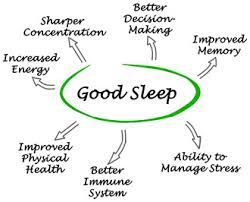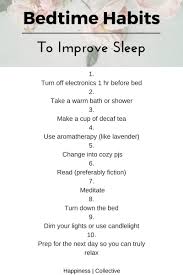Understanding Melatonin: The Sleep Hormone
Melatonin is a hormone produced by the pineal gland in the brain that plays a crucial role in regulating our sleep-wake cycle. Often referred to as the “sleep hormone,” melatonin helps control our circadian rhythm, the internal clock that determines when we feel awake and when we feel sleepy.
Our bodies naturally produce melatonin in response to darkness, with levels rising in the evening to promote sleep and declining in the morning to signal wakefulness. This natural cycle can be disrupted by various factors, such as exposure to artificial light at night, irregular sleep patterns, or certain medical conditions.
Many people turn to melatonin supplements to help improve their sleep quality or address issues like insomnia or jet lag. These supplements are available over-the-counter and are often used as a short-term solution for sleep problems.
It’s important to note that while melatonin can be effective for some individuals, it is not a cure-all for sleep disorders. Consulting with a healthcare provider before starting melatonin supplements is recommended, especially if you have underlying health conditions or are taking other medications.
In addition to its role in regulating sleep, melatonin also has antioxidant properties and may play a role in supporting immune function and overall health. Research on the potential benefits of melatonin continues to evolve, shedding light on its diverse functions beyond just promoting restful sleep.
As with any supplement or hormone-related therapy, it’s essential to understand how melatonin works, its potential benefits and risks, and how it may interact with other medications or conditions. By staying informed and seeking guidance from healthcare professionals, individuals can make informed decisions about incorporating melatonin into their wellness routines.
Whether you’re struggling with occasional sleep disturbances or looking for ways to optimize your sleep quality, exploring the role of melatonin in promoting healthy sleep patterns can be a valuable step towards achieving restful nights and energized days.
7 Essential Tips for Using Melatonin Safely and Effectively
- Melatonin is a hormone that helps regulate sleep-wake cycles.
- It is commonly used as a supplement to improve sleep quality and treat insomnia.
- Melatonin supplements are available over-the-counter in various forms such as pills, gummies, and liquids.
- Consult with a healthcare provider before starting melatonin supplements, especially if you have any health conditions or are taking medications.
- Melatonin may cause drowsiness, so it is best taken before bedtime.
- Avoid driving or operating machinery after taking melatonin until you know how it affects you.
- Long-term use of melatonin should be monitored by a healthcare professional.
Melatonin is a hormone that helps regulate sleep-wake cycles.
Melatonin is a hormone that plays a vital role in regulating our sleep-wake cycles. Produced by the pineal gland in the brain, melatonin levels naturally rise in the evening to promote sleep and decline in the morning to signal wakefulness. This hormone helps synchronize our internal body clock, known as the circadian rhythm, influencing when we feel sleepy and when we feel alert. Understanding the significance of melatonin in maintaining healthy sleep patterns can provide valuable insights into improving overall sleep quality and well-being.
It is commonly used as a supplement to improve sleep quality and treat insomnia.
Melatonin is frequently utilized as a supplement to enhance sleep quality and address insomnia. Many individuals turn to melatonin supplements as a natural aid in promoting better sleep patterns and overcoming difficulties with falling or staying asleep. By leveraging the sleep-regulating properties of melatonin, individuals seek to establish a more consistent and restful sleep routine, ultimately aiming to improve their overall well-being and daytime functioning.
Melatonin supplements are available over-the-counter in various forms such as pills, gummies, and liquids.
Melatonin supplements are easily accessible over-the-counter in a variety of forms, including pills, gummies, and liquids. This convenience allows individuals to choose a format that best suits their preferences and needs when incorporating melatonin into their sleep routine. Whether you prefer the simplicity of swallowing a pill, the taste of a gummy, or the quick absorption of a liquid form, there is an option available to make integrating melatonin into your nightly regimen as seamless as possible.
Consult with a healthcare provider before starting melatonin supplements, especially if you have any health conditions or are taking medications.
It is crucial to consult with a healthcare provider before initiating melatonin supplements, particularly if you have any existing health conditions or are currently taking medications. Healthcare professionals can provide personalized guidance based on your individual health profile, ensuring that the use of melatonin is safe and appropriate for your specific circumstances. This proactive approach helps mitigate potential risks and interactions, allowing for a more informed decision regarding the incorporation of melatonin into your wellness routine.
Melatonin may cause drowsiness, so it is best taken before bedtime.
Melatonin, known for its sleep-inducing properties, may cause drowsiness, making it ideal to take before bedtime. By timing the intake of melatonin close to when you plan to go to sleep, you can leverage its effects to help regulate your sleep-wake cycle and improve your overall sleep quality. It is important to follow recommended dosages and consult with a healthcare provider before incorporating melatonin supplements into your bedtime routine to ensure safe and effective use.
Avoid driving or operating machinery after taking melatonin until you know how it affects you.
It is advisable to avoid driving or operating machinery after taking melatonin until you understand how it impacts your alertness and coordination. Melatonin can cause drowsiness and affect your reaction time, which may compromise your ability to safely operate vehicles or heavy machinery. Prioritizing safety by assessing the effects of melatonin on your cognitive functions before engaging in tasks that require focus and quick reflexes is essential for preventing accidents and ensuring your well-being.
Long-term use of melatonin should be monitored by a healthcare professional.
Long-term use of melatonin should be monitored by a healthcare professional to ensure its continued effectiveness and safety. While melatonin is generally considered safe for short-term use, prolonged or excessive intake may lead to potential side effects or interactions with other medications. Consulting with a healthcare provider can help individuals establish an appropriate dosage, address any underlying sleep issues, and mitigate any risks associated with extended melatonin supplementation. Regular monitoring and adjustments guided by a healthcare professional can optimize the benefits of melatonin while minimizing any potential drawbacks, ensuring a balanced approach to supporting healthy sleep habits.




